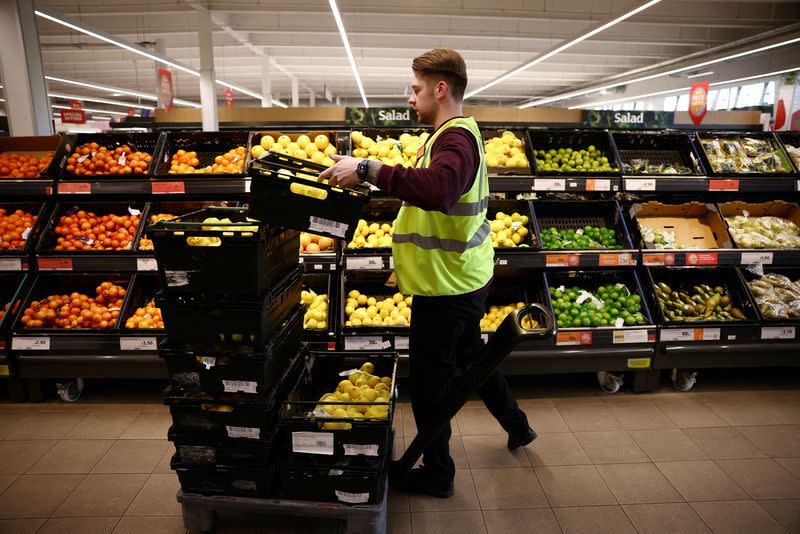Seven out of ten UK households fear cost-of-living hit -NielsenIQ
LONDON (Reuters) - Some 72% of UK households fear they will be severely or moderately affected by the cost-of-living crisis in the first part of 2023, up from 54% at the end of last year, survey data from market researcher NielsenIQ showed on Tuesday.
After a tough 2022, British consumers are facing an even tighter squeeze on their finances this year. Inflation is running at 10.5%, mortgage rates are rising and the government is cutting back support on household energy bills.
NielsenIQ said UK grocery sales on a value basis rose 7.6% in the four weeks to Jan. 28, due to an increase in food price inflation to 13.8%.
However, volume sales fell 6.9% - the lowest volume growth recorded in over nine months, which reflects the concern shoppers have about cost-of-living increases, it said.
“We expect a challenging first quarter for the grocery industry, with inflation very much top of mind for shoppers," Mike Watkins, NielsenIQ’s UK head of retailer and business insight, said.
"As a result, shoppers will continue to trade down to cheaper brands or private label products."
Echoing data from rival market researcher Kantar last week, NielsenIQ said German-owned discounters Aldi and Lidl continued to show strong momentum with sales growth of 21.9% and 17.3% respectively over the 12 weeks to Jan. 28.
It said Lidl overtook Morrisons to become the UK's fifth largest grocer with a market share of 8.9%.
Sales at market leader Tesco rose 8.1%. They were up 8.3% at Sainsbury's and up 7.4% at Asda but down 0.5% at Morrisons.
NielsenIQ said online's share of all FMCG (fast-moving consumer goods) sales was 11.1% - similar to its share in the latter part of 2022.
Separately on Tuesday, surveys from the British Retail Consortium and Barclays showed spending at British retailers slowed in January but the overall picture looked a bit brighter as consumers treated themselves to cinema trips and booked holidays.
(Reporting by James Davey; Editing by Mark Potter)

 Yahoo Movies
Yahoo Movies 

